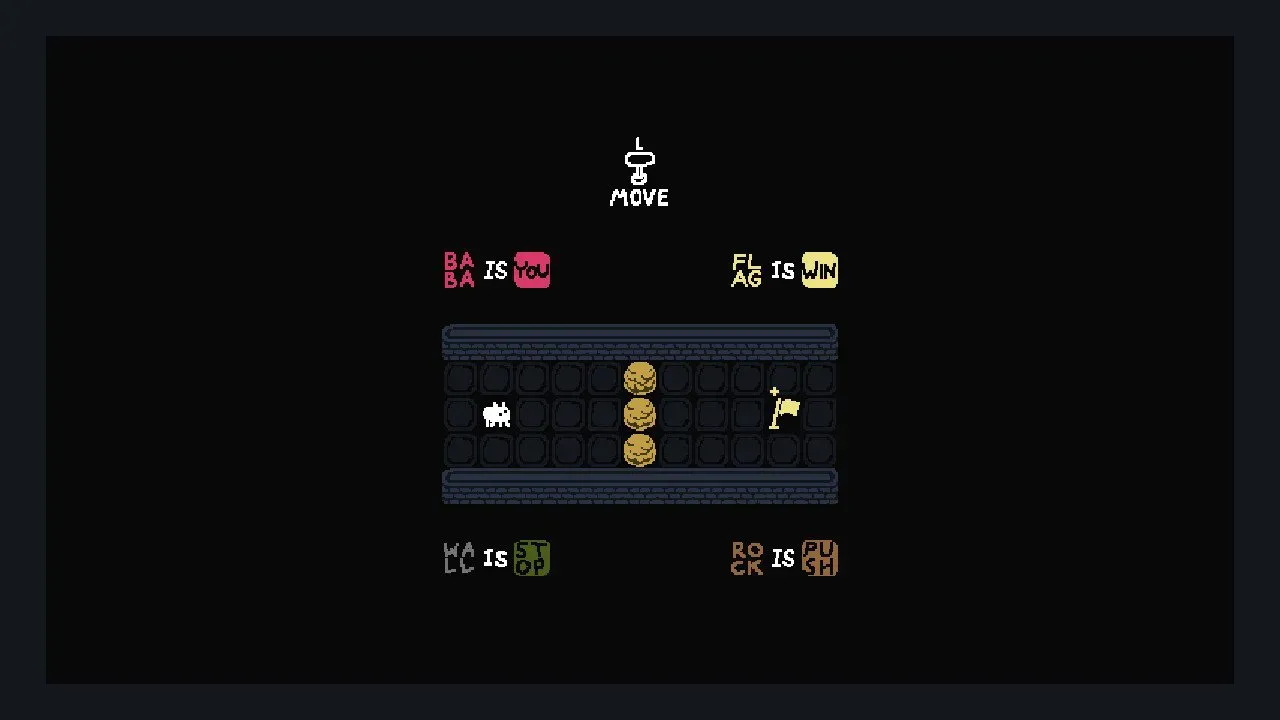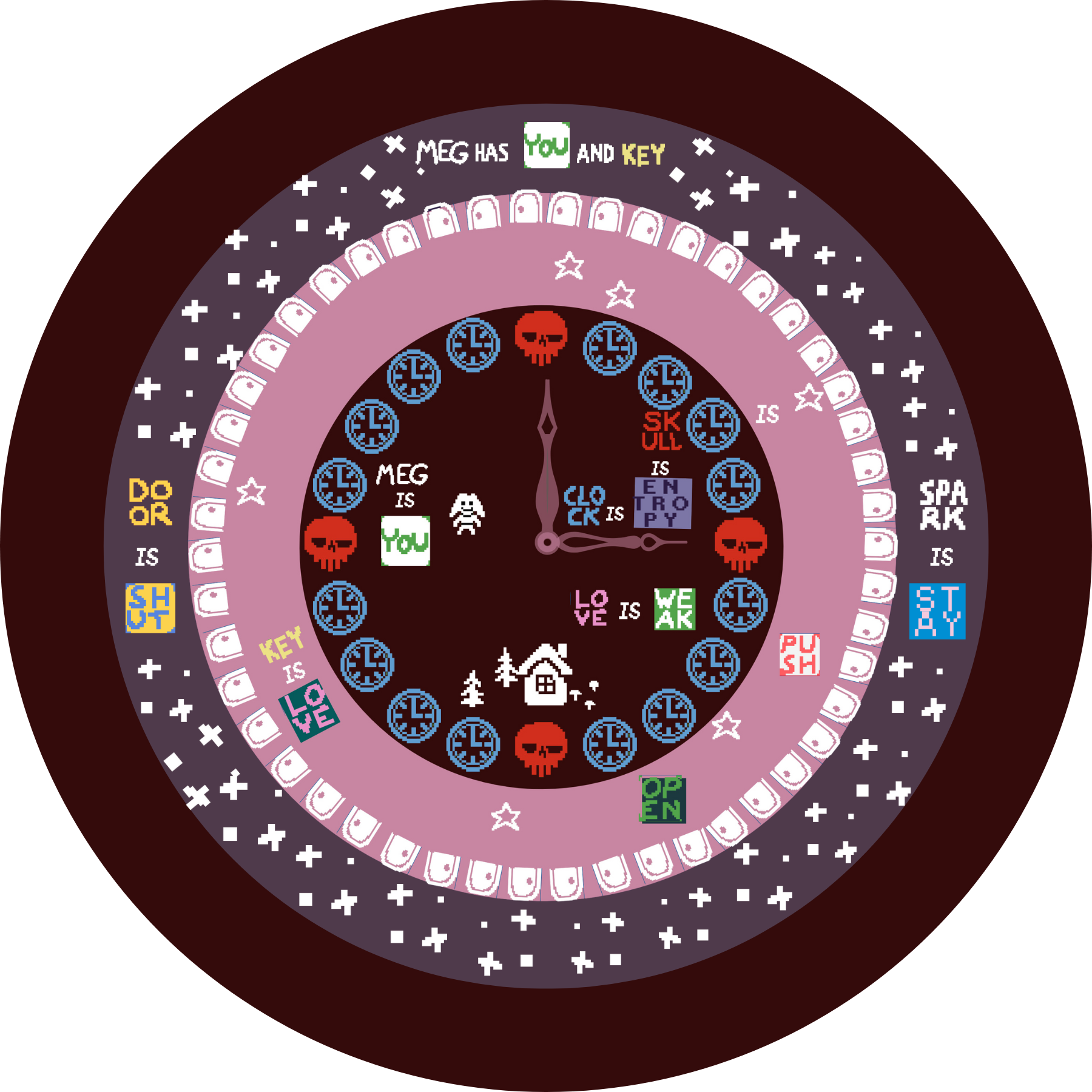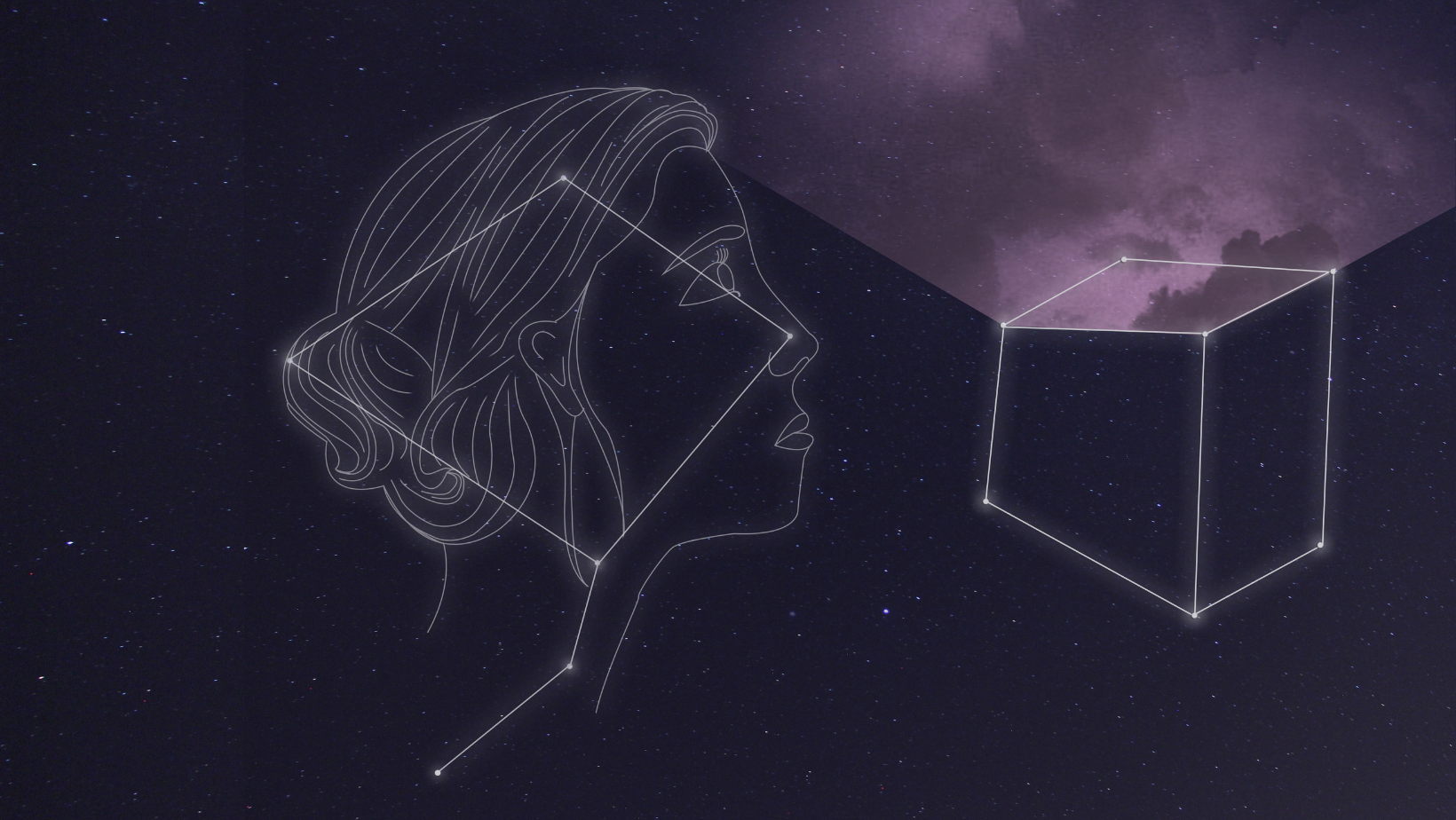Pocket Observatory only exists because of the close observance of my readers. Every time you read my work, share my work, and pay for my work, you make my work possible. Thank you.
Want to treat me to a birthday present? Make a one-time donation so that I can keep working. (THANK YOU!)
I woke up on Tuesday with a word problem in my head. The same word problem that’s greeted me every birthday morning since my dad’s death,
My dad died when he was 53 years and 135 days old.* Today I am (x) years old. If I live as long as my dad, I have (y) more years and 135 days of living.
*with so few years, the days seem important to count too
It took me a little while to do the math. I can’t see images in my head, even figures like letters and numbers. I think that might explain why it feels like constants and variables exist outside of me. I have to feel my way towards them. This is much more difficult in the morning when I am at my fuzziest. I had a fever too. And that the heat behind my eyes wasn’t helping.
But eventually, I got there,
My dad died when he was 53 years and 135 days old. Today, I am thirty-nine years old. If I live as long as my dad, I have 14 years and 135 days of living left.
I can’t get up until I’ve done the word problem. Despite this, I try not to take its product too seriously. It’s just some information my brain gives me. 14 years and 135 days. Could be less, could be more. I hope for more, but will take whatever I can get.
And even as I write that last paragraph, I realize I am not sure that a measurement of years is even the best way to quantify the more and the less. People in different eras, different regions, and different bodies experience the passage of time differently. Time perception is dependent on so many factors, including age, stress levels, memory function, and culture. I’ve written about how my own ummmmmm factors affect time perception.
I do this thing Riley calls “time-skipping”, like in Animal Crossing when you move the game’s clock forward or backward. Sometimes, I talk about a month ago like it was yesterday and yesterday like it was ten years ago because, in my head, there’s really little difference. This is actually wildly destructive to my life. Please consider how much of our existence is dependent on doing things “on time.” Now imagine me late or a no-show to all of those things. Yeah. - Attention is All You Need
Time perception is kind of an imprecise term. The Stanford Encyclopedia of Philosophy (my most patient teacher) says, “The very expression ‘the perception of time’ invites objection.” We don’t actually perceive time, we perceive events in time and their temporal relationship to one another.
An event is just change: the aging of a cell, the blooming of a flower, the turning of a planet. Deep attention to the events in time makes it seem like time is flowing more slowly. We have theories to explain this phenomenon, but that’s all. Attention can make time feel slower. It can change events too.
Quantum physics has taught us about the observer effect: observing or measuring a particle can alter its state. What do these phenomena mean when paired? I don’t know. I’ll never know. I am usually just happy to ask the question.
My body burned hotter the rest of the day. The city cut off our water at 8am for a repair somewhere up the line that couldn’t wait. I filled a few bottles with water right before the faucet started sputtering. A fever and no water. Happy Birthday, Meg.
After the house got quiet there was a snow squall. I’ve never been in a squall of any kind, have you? I’ve only read about them. A snow squall is a sudden snowstorm, that seems conjured out of still, empty air. It seems to come ahead of the clouds. Its sharp, wide winds fill with snow until everything is white and cutting. They can be very dangerous because people don’t know they are coming. For fifteen minutes, our front and backyards disappeared. It was just me, the dog, and the crevice behind an upper cabinet where the wind can blow into the kitchen.
The word “squall” is derived from two words: one that means sudden gush of water and one that means to cry out. Both seemed fitting for the day, in my waterless house with my water-filled eyes. (I can’t keep my eyes dry when I have a fever.) Blinking away the wet, I felt like seeing a squall in real life was something special. But I know I felt that way because I was protected from it.
I tried to work. For my birthday I will be a real writer! I need to write something for this newsletter that will get people to read my work, pay for my work, and let me keep doing my work. For my birthday I will pay for groceries! An article about something trending! But I couldn’t stop thinking about the newly small answer to my increasingly old word problem.
It occurred to me that Pocket Observatory, my decision to make observation my work, is really a time-depth project. I am not trying to artificially extend my life like Silicon Valley Investor Seeks to Upload His Consciousness to the Cloud. But I do think I am trying to see if I can push my way deeper into the time I have. I just wish I could Stay.
I wish I could Stay when I kiss my children goodnight, when I breathe in the smell of their cheeks, when I see a crumb cast a shadow on my kitchen table, when I read a sentence that feels new and old, I wish I could Stay. But I know I’ll never get down deep enough into an event to remain within it. I am a collection of events, too and so change within time.
The Second Law of Thermodynamics requires every system, including the one that contains my beating heart, to grow more disordered. We age and die because of entropy. Within this context, entropy is a true one-way function, which is just a math-y way to say it is irreversible. The kiss, the crumb, the sentence, the woman observing, will all be broken apart.
The law is a rule and some rules can’t be broken.
After the squall, after my failed writing, while the faucets were still dry and my fever still hot, I sat down on our couch with a quilt and our Switch. I’d let myself play video games for my 39th birthday. My favorite game right now is a puzzle game about rules, Baba is You. It’s hard for me to describe to people. Luckily, Chris Plante did that work for me in Polygon a couple of years ago,
“Every video game has its own rules, but in the case of Baba Is You, the rules are the game. In the new puzzle game from Arvi “Hempuli” Teikari, the rules exist literally within its world, ready to be remixed.
Each stage is a small 2D space containing a variety of objects and characters, along with corresponding words that describe the rules of the puzzle. To solve each puzzle, I must change the preset rules of the stage by rearranging the words to create new rules altogether.”
I know this sounds confusing. I didn’t really understand the game until I played it. I think Plante explains it better than I could, so I am going to quote him again,
I know, it’s a doozy. We can work through this one together slowly.

In the first stage, we see a white rabbit — the baba — and a yellow flag. They are separated by three rocks and sandwiched between two stone walls. Also on the stage are its rules: Baba Is You, Flag Is Win, Wall Is Stop, Rock Is Push.
Since “Baba Is You,” I can control the bunny. Since Rock Is Push, the bunny can push aside the rocks. And since the Flag Is Win, I can touch the flag to complete the stage. Or I can modify the rules written on the stage to complete the puzzle another way entirely.
Every word on the screen is a movable tile. So, as the Baba, I can push the “Win” tile around the stage, changing “Rock Is Push” to “Rock Is Win.” Now I can complete the puzzle by touching the rock.
Or, I can change “Wall Is Stop” to simply “Wall Is” by pushing “Stop” out of the sentence. Now the two stone walls can’t stop me, so my baba is free to walk through them.
Or, I can swap the “Baba” and “Flag” tiles to become the flag, since the statement would then read “Flag is You.” And, as the flag, I can move around the puzzle, shifting the tiles to say “Baba Is Win.” I can then touch the immobile baba to complete the stage.
Some of the rules cannot be rearranged; they’re positioned in the corner of the level. You can add to these rules, sometimes. But you cannot break them. (At least not until more rules are introduced in later levels. Ahem.) There is always an empty space around the level, that you cannot enter. It’s not written anywhere but Level is Stop. I’ve become endlessly fascinated with the possibility of that beyond-level space. If I could there, I could change every rule, at every level.
One my favorite puzzles so far had an impassable boiling river. Water is Hot was in a corner. Flag is Win was on the opposite shore. Baba is You, Baba is Melt and You is Float. Okay, easy enough. I’d float across the river. But Flag was on the ground; I couldn’t reach it while floating.
I floated back across the river to the Rules, moved them around, and got Baba on the ground. But I could not cross the river. I was stumped. I think the simpliciyt of the solution kept me from seeing it at first: I just needed to add to a corner rule: Water is Hot and Float
I walked under the river and touched the Flag. Flag is Win. I liked this puzzle. It’s how I imagine existing outside of time, getting to walk under or over its flow to Stay.
There are other puzzles where You need be okay with being broken apart to get to Win. Like when Win is on the other side of a locked door and Baba is You, Baba is Weak, Baba has Key, Key is Open.
To Win, you need to make something else You too - a box, a snak or an alien. Baba is You, Box is You. So when you break Baba against Wall to reveal the Key, the other You can push it toward the shut door.
The Key in Baba is You looks like an old-fashioned metal key. I can’t remember the last time I used a physical key to get into anything other than my front door. I use numbers as keys, mostly. But a sequence of numbers isn’t so different from a metal key, they’re just different ways of expressing information.
In Information Theory, entropy measures the unpredictability of information contained within any given process, system, object. The more information, the more unpredictability and the higher the entropy.
Encryption protects the digital information of our lives, from our bank accounts to our emails to our identities. It is kind of like a safe with a lock made of mathematical randomness. The right key is produced by and for the lock.
The key is unpredictable because it is rooted in randomness. The more randomness in the lock creation, the more difficult it is for an interloper to figure out the key. Information protecting information. I like that.
I was cold under the quilt, the kind of shivering that comes sometime before a fever breaks. So I cover my head too and let Baba is You illumate the space around me. My eyes got wetter and the rule tiles blurred. So I close my eyes and listen to my Switch hum.
Meg is You. Meg is Stuck. Meg has fourteen years, or more or less.
I thought,
Maybe I’ve been looking at time all wrong. Or, if not all wrong, then maybe I just haven’t moved around the Rules quite right.
Let’s try something different.
Like, maybe my observance is just about subverting time or changing events in time. Maybe it’s about the information I gather while observing. The more information I hold, the more complex I become, the more…and then I crash into something…no that can’t be it….because it can’t be about me. You is not Enough.
So let’s move the Rules around some more and try again.
Maybe we can describe so much of existence with physics, which is math, because everything is information. Some physicists think information existed before matter.
The singularity that existed before existence was full of information. When that singularity expanded in the thing we calll the Big Bang, the universe that followed became the processer for that information. So the universe is a computer. And matter is a product of its processing power. Maybe. But what rule makes that make any kind of sense?
Maybe existence becomes more disordered all the time because everything is information, and unlike energy, information isn’t just conserved; it can be created. The aging of a cell, the blooming of a flower, the turning of a planet, a kiss, a crumb, a coffin - that’s all more information all the time.
And more information means more complexity. And more complexity means more unpredictability. And more unpredictability means what?
Well, I guess in a system with that much entropy - all the entropy in existence, and always more - it could mean….everything.
What if entropy isn’t just used in encryption, what if it IS encryption. What if the the universe is becoming more disordered as a way to protect the information it holds?
What if entropy isn’t separating us into disordered pieces? What if it’s using disorder to keep us? What if we’re part of the lock that makes the key that helps us get to Stay?
You and I wouldn’t need to observe for this to be so. After all, our inobservance would just be more information, right? Everything is. But what if when we do observe, we get to glimpse the complexity that promises unpredictability?
What if that increasing unpredictability is a form of hope, for those of us who hope that what can be will be? How much complexity can I see in 14 years? In 14 days? In 14 minutes? In 14 seconds?
The Switch hummed louder and I tried to turn my questions into rules for a level of Baba is You

Meg is You, Clock is Entropy, Skull is Entropy, Love is Weak, Key is Love, Door is Shut, Spark is Stay, Meg has You and Key
Open, Push. Is
Okay, so I need to get to Stay. Stay is behind shut doors. I need a Key. I push the is and Weak tiles away from Love and towards Meg. Meg is Weak. Now I can break Meg against the clock or skull to reveal the Key, which is Love. In Baba is You, Love is a pink heart.
Because Meg has You, this also reveals a new icon for You, so that I can keep working on the puzzle even after Meg is Gone. Okay, but what is You now? I don’t know what icon will revealed when Meg is broken into pieces. I haven’t played this level yet. In 14 years, or more, or less, I guess I’ll find out. So Whatever is You pushes the heart to the door and touches a Spark, which is Stay.
It’s too simple. And it doesn’t really make sense beyond itself. How is the Key in Meg? Why? And what is in the Spark that makes it Stay? And what does Stay even mean if Meg, and everyone She Loves, are broken apart before they get there? What remains to Stay?
And so I arrive, again, at the same place I always do when working on this puzzle, remembering the rules that explain the game are beyond my level.
I turn off the Switch, frustrated with myself. I don’t know why I waste my time on this stuff. It’s not monetizable. My family needs me to work, not wonder. And like, if anyone is going to crack the universes code? It's not me! I need to start following the rules at my level.
The water should be back on by now. I get up, wrapped in the quilt, and walk into the kitchen. I’ll drink deeply and then go write practically. Meg is 39 and has Sense.
There are dishes in the kitchen sink. The snow is melting. My eyes are dry. I think my fever must be cooling. I can follow the rules, as they are. I can. I will.
I move tiles around until Meg becomes what I know she should be,
Meg is Steady. Meg is Strategic. Meg is Successful.
There! I've solved it! But when I turn on the faucet, it sputters before the water gushes out, and I remember there's an unbreakable rule in the corner,
Meg is Squall.
Well. Fuck.


